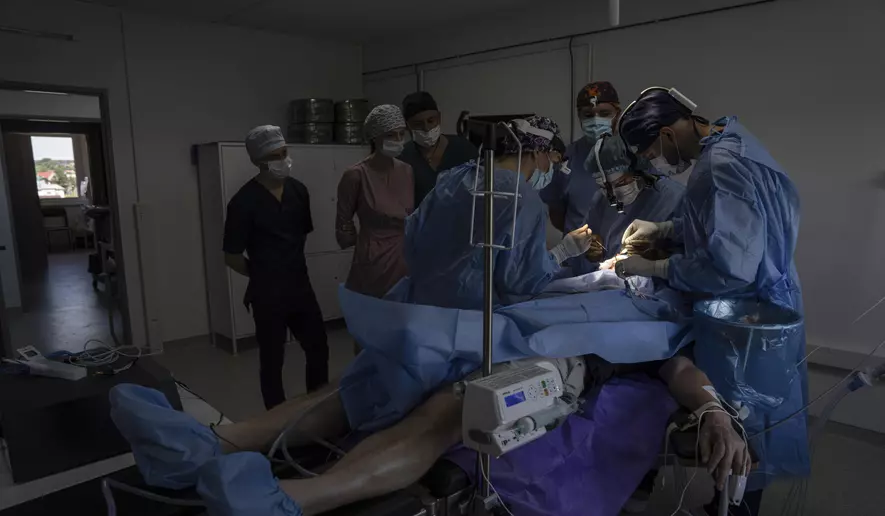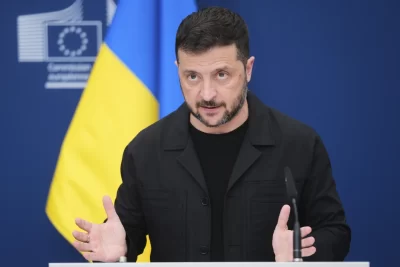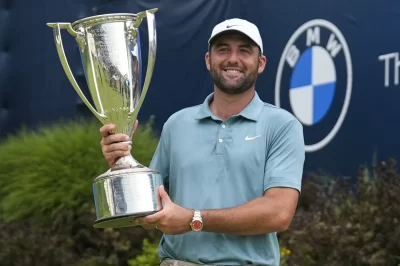The small band of soldiers gather outside to share cigarettes and war stories, sometimes casually and sometimes with a degree of testiness over recollections made unreliable by their last day fighting, the day the war took away their limbs.
Some clearly remember the moment they were hit by anti-tank mines, aerial bombs, a missile, a shell. For others, the gaps in their memories loom large.
Vitaliy Bilyak’s skinny body is a web of scars that end with an amputation above the knee. During six weeks in a coma, Bilyak underwent over 10 surgeries, including his jaw, hand, and heel, to recover from injuries he received April 22 driving over a pair of anti-tank mines.
“When I woke up, I felt like I was born again and returned from the afterlife,” said Bilyak, who is just beginning his path to rehabilitation. He does not yet know when he’ll receive a prosthesis, which must be fitted individually to each patient.
Ukraine is facing a future with upward of 20,000 amputees, many of them soldiers who are also suffering psychological trauma from their time at the front. Europe has experienced nothing like it since World War I, and the United States not since the Civil War.
Mykhailo Yurchuk, a paratrooper, was wounded in the first weeks of the war near the city of Izium. His comrades loaded him onto a ladder and walked for an hour to safety. All he could think about at the time, he said, was ending it all with a grenade. A medic refused to leave his side and held his hand the entire time as he fell unconscious.
When he awoke in an intensive care unit the medic was still there.
“Thank you for holding my hand,” Yurchuk told him.
“Well, I was afraid you’d pull the pin,” the medic replied. Yurchuk’s left arm was gone below the elbow and his right leg above the knee.
In the 18 months since, Yurchuk has regained his equilibrium, both mentally and physically. He met the woman who would become his wife at the rehabilitation hospital, where she was a volunteer. And he now cradles their infant daughter and takes her for walks without the slightest hesitation. His new hand and leg are in stark black.
Yurchuk has himself become the chief motivator for new arrivals from the front, pushing them as they heal from their wounds and teaching them as they learn to live and move with their new disabilities. That kind of connection will need to be replicated across Ukraine, formally and informally, for thousands of amputees.
“Their whole locomotive system has to be reoriented. They have a whole redistribution of weight. That’s a really complicated adjustment to make and it needs to be made with another human being,” said Dr. Emily Mayhew, a medical historian at Imperial College who specializes in blast injuries.
There are not nearly enough prosthetic specialists in Ukraine to handle the growing need, said Olha Rudneva, the head of the Superhumans center for rehabilitating Ukrainian military amputees. Before the war, she said, only five people in all of Ukraine had formal rehabilitation training for people with arm or hand amputations, which in normal circumstances are less common than legs and feet as those sometimes are amputated due to complications with diabetes or other illnesses.
Rudneva estimated that 20,000 Ukrainians have endured at least one amputation since the war began. The government does not say how many of those are soldiers, but blast injuries are among the most common in a war with a long front line.
Rehabilitation centers Unbroken and Superhumans provide prostheses for Ukrainian soldiers with funds provided by donor countries, charity organizations and private Ukrainian companies.
“Some donors are not willing to provide military aid to Ukraine but are willing to fund humanitarian projects,” said Rudneva.
Some of the men undergoing rehabilitation regret they’re now out of the war, including Yurchuk and Valentyn Lytvynchuk.
Lytvynchuk, a former battalion commander, draws strength from his family, especially his 4-year-old daughter who etched a unicorn on his prosthetic leg.
He headed recently to a military training ground to see what he could still do.
“I realized it’s unrealistic. I can jump into a trench, but I need four-wheel drive to get out of it. And when I move ‘fast’ a child could catch me,” he said. Then, after a moment, he added: “Plus, the prosthesis falls off.”
The hardest part for many amputees is learning to live with the pain — pain from the prosthesis, pain from the injury itself, pain from the lingering effects of the blast shockwave, said Mayhew, who has spoken with several hundred military amputees over the course of her career. Many are dealing with disfigurement and the ensuing cosmetic surgeries.
“That comorbidity of PTSD and blast injury and pain — those are very difficult to unpick,” she said. “When people have a physical injury and they have a psychological injury that goes with it, those things can never be separated. ”
or the severely injured, rehabilitation could take longer than the war ultimately lasts.
The cosmetic surgeries are crucial to allowing the soldiers to feel comfortable in society. Many are so disfigured that it’s all they believe anyone sees in them.
“We don’t have a year, two,” said Dr. Natalia Komashko, a facial surgeon. “We need to do this as if it was due yesterday.”.
Bilyak, the soldier who drove over anti-tank mines, still sometimes finds himself dreaming of battle.
“I’m lying alone in the ward on the bed, and people I don’t know come to me. I realize they’re Russians and they start shooting me point-blank in the head with pistols, rifles,” he recounted. “They start getting nervous because they’re running out of bullets, and I’m alive, I show them the middle finger and laugh at them.”
___
Illia Novikov in Kyiv, Ukraine; Volodymyr Yurchuk in Lviv, Ukraine; and Lori Hinnant in Paris contributed to this report.
About Author








